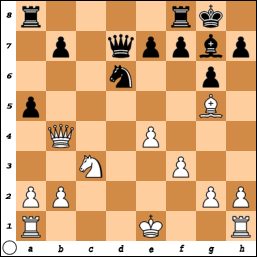2016 – Year of Paul Keres
November 24, 2015
The following is from the FIDE site:
http://www.fide.com/component/conten...aul-keres.html
January 7 2016 will be the 100th birth anniversary of the legendary chess grandmaster Paul Keres who has been nicknamed “The Eternal Second” in the chess world.
Already in 1938, Keres earned the right to play a world championship match against Alexander Alekhine after winning the AVRO tournament in Holland, but the match never took place due to World War II. After Alekhine's death, the Hague-Moscow match tournament was organized in 1948, its winner was crowned the new world champion (Keres was 3. -4.). Since then, Paul Keres was one of the main world champion title contenders – for decades he was a participant in the Candidates Tournaments: Budapest 1950 (4th. place); Zurich 1953 (2. -4.); Amsterdam 1956 (2nd place); Bled 1959 (2nd place) and Curacao 1963 (2nd place). Due to the fact that Keres almost always came only second, he was nicknamed “the Eternal Second“.
Paul Keres won the gold at 7 Chess Olympiads (1952-1964) as a member of the Soviet Union team. Later, he also was the captain of the Soviet team. In 1939, Keres came third at the Buenos Aires Chess Olympiad in Argentina representing Estonia.
Paul Keres is a national hero of Estonia and a symbol of fair play. He was elected the Estonian Sportsman of the 20th century by a popular vote and is the only chess player in the world whose portrait has been on a banknote. Several Estonian cities have streets named after him, there are monuments to Keres in Pärnu and Tallinn, and in 2016, a monument will be built in his birthplace Narva. In 1975, Paul Keres Chess House in Tallinn was opened and it is active to this day. Many books have been written about his life and games, there are also several plays and movies about Keres.
Outside Estonia, several Paul Keres memorial tournaments are held, as he has won the hearts of chess players all over the world with his chess games, fair play and gentlemanly behaviour.
In connection with the 100th birth anniversary of Paul Keres, the Estonian Chess Federation in cooperation with the Republic of Estonia and the Estonian Olympic Committee will organize a year-round international memorial festival Paul Keres`100, which will start on December 8 2015 with the international youth tournament “Chess Stars of the Baltic Sea Region” in Narva. The final event of the festival will be the European Rapid and Blitz Chess Championships in December 2016 in Pärnu.
November 24, 2015
The following is from the FIDE site:
http://www.fide.com/component/conten...aul-keres.html
January 7 2016 will be the 100th birth anniversary of the legendary chess grandmaster Paul Keres who has been nicknamed “The Eternal Second” in the chess world.
Already in 1938, Keres earned the right to play a world championship match against Alexander Alekhine after winning the AVRO tournament in Holland, but the match never took place due to World War II. After Alekhine's death, the Hague-Moscow match tournament was organized in 1948, its winner was crowned the new world champion (Keres was 3. -4.). Since then, Paul Keres was one of the main world champion title contenders – for decades he was a participant in the Candidates Tournaments: Budapest 1950 (4th. place); Zurich 1953 (2. -4.); Amsterdam 1956 (2nd place); Bled 1959 (2nd place) and Curacao 1963 (2nd place). Due to the fact that Keres almost always came only second, he was nicknamed “the Eternal Second“.
Paul Keres won the gold at 7 Chess Olympiads (1952-1964) as a member of the Soviet Union team. Later, he also was the captain of the Soviet team. In 1939, Keres came third at the Buenos Aires Chess Olympiad in Argentina representing Estonia.
Paul Keres is a national hero of Estonia and a symbol of fair play. He was elected the Estonian Sportsman of the 20th century by a popular vote and is the only chess player in the world whose portrait has been on a banknote. Several Estonian cities have streets named after him, there are monuments to Keres in Pärnu and Tallinn, and in 2016, a monument will be built in his birthplace Narva. In 1975, Paul Keres Chess House in Tallinn was opened and it is active to this day. Many books have been written about his life and games, there are also several plays and movies about Keres.
Outside Estonia, several Paul Keres memorial tournaments are held, as he has won the hearts of chess players all over the world with his chess games, fair play and gentlemanly behaviour.
In connection with the 100th birth anniversary of Paul Keres, the Estonian Chess Federation in cooperation with the Republic of Estonia and the Estonian Olympic Committee will organize a year-round international memorial festival Paul Keres`100, which will start on December 8 2015 with the international youth tournament “Chess Stars of the Baltic Sea Region” in Narva. The final event of the festival will be the European Rapid and Blitz Chess Championships in December 2016 in Pärnu.



Comment